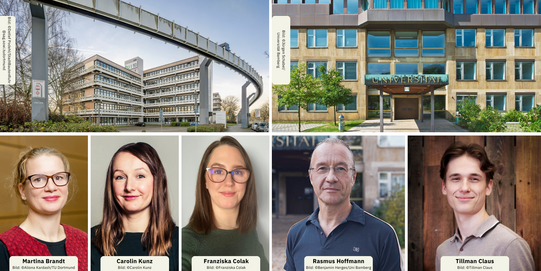
Interactions between health and retirement: Social inequality against the background of an increase in the retirement age (GeReAlt)
Brief information on the project
Health is one of the most important determinants for the transition to retirement and for life chances after retirement. The links between health and retirement are not clear-cut due to opposing mechanisms: both poor and good health can lead to people retiring earlier or later. This means that retirement cannot be explained solely by the state of health, but is also influenced by other determinants of social inequality. However, the development of health in retirement must also be considered in a differentiated manner, as health restrictions increase for some social groups, while the health of others improves. In addition to these individual factors, macro-level influences must also be taken into account: In many European countries, including Germany, the age limit for the standard old-age pension has been raised, which in turn can have an impact on the health of (future) pensioners.
The GeReAlt project focuses on these interactions between health, pension and socio-economic status. The project consists of two work packages, which are being carried out at the University of Bamberg and TU Dortmund University. Based on the German Socio-Economic Panel Study (SOEP), the first work package examines (1) determinants that, together with poor health, influence the timing of retirement and (2) how health and well-being change in different socio-economic groups after retirement. The second work package uses the Survey of Health, Ageing and Retirement in Europe (SHARE) to investigate whether the increase in the age limit for the standard old-age pension in European countries leads to a decline in health and well-being. The aim is to use the results to derive recommendations for action for politicians, scientists and companies, which we will communicate in scientific articles, policy papers, at conferences and a series of public events.
Information on the project team
Behind the GeReAlt project is an interdisciplinary team that has been working on issues of ageing, health, social inequality and social policy for many years. The project members are united by a common interest in investigating socially relevant issues using sound empirical methods and contributing to the development of political solutions.
Prof. Dr. Martina Brandt is Professor of Social Structure and Sociology of Ageing Societies at TU Dortmund University, Vice Dean for Research and spokesperson for the HBS doctoral program "New Challenges in Ageing Societies". She also headed the expert commission for the German government's 9th Ageing Report and is involved in the central coordination of the Survey of Health, Ageing and Retirement in Europe (SHARE) as "Area Coordinator Family & Social Networks". In GeReAlt, she can contribute her expertise on the social situation of older people and their living conditions to the analysis of pension policy and draw on her experience in the methods of empirical age(ing) research.
Dr. Carolin Kunz is Principal Investigator (PI) in the GeReAlt project and researches and teaches at the Chair of Social Structure and Sociology of Ageing Societies at TU Dortmund University. As a health sociologist, she focuses on the interplay between gainful employment, health and transitions into retirement. By combining sociological theories with empirical analysis of SOEP and SHARE data, she aims to identify mechanisms in the interplay between health and retirement trajectories.
Franziska Colak has been a research assistant in the project since April 2025 and is studying for a Master's degree in Educational Science with a focus on adult education. She has been at the Chair of Social Structure and Sociology of Ageing Societies at TU Dortmund University since June 2023. Her project work also follows her research interest in the life situations of older people.
Prof. Dr. Rasmus Hoffmann is Professor of Sociology, in particular Social Inequality, at the University of Bamberg. He is on the board of the DGS section for medical and health sociology. His expertise is in the field of demography and life course research (especially in old age) with a focus on the interaction between socio-economic status and health. He has been researching health inequalities in international comparison for many years and uses advanced quantitative methods to analyze complex relationships between socioeconomic status, health and demographic developments. In the GeReAlt project, he contributes his methodological expertise in causal analysis as well as his substantive perspective on the role of structural inequalities in the ageing process.
Tillman Claus is a doctoral student in the project. Previously, his Master's degree in Sociology (M.Sc.) at the Catholic University of Leuven in Belgium focused on quantitative analysis and social data science. Since February 2025, he has been working as a research assistant in the GeReAlt project at the Chair of Sociology, especially Social Inequality at the University of Bamberg. There he deals with the effects of increases in the retirement age on social and, in particular, health inequalities in Europe. As part of this project, he began his doctorate on the same topic at the Bamberg Graduate School of Social Sciences.
The team at the University of Bamberg:
https://www.uni-bamberg.de/sozungleichheit/


